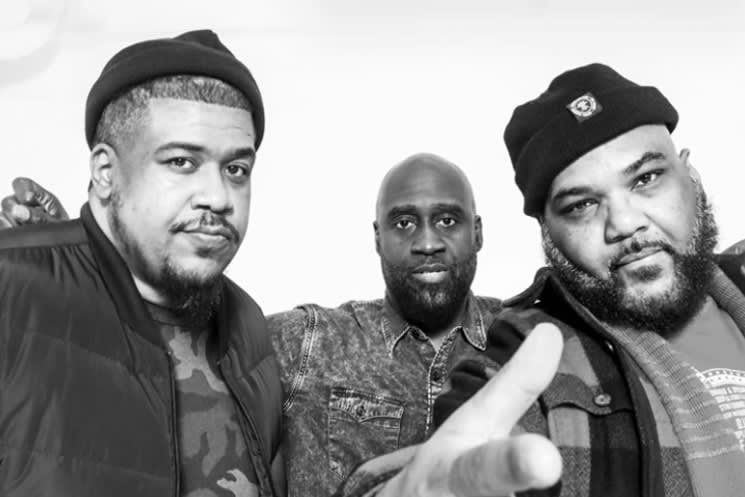One of the most influential hip-hop groups of all time, De La Soul's status as icons in the culture is unquestionable. The originators of the album skit, pioneers of the jazz sample, and the fathers of backpack rap; the conscious sub-section of hip-hop does not exist as we know it without Posdnuos, Trugoy, Maseo and Prince Paul.
With quality and longevity as their calling card, there are no bad De La Soul albums — only good ones, great ones and classics. In celebration of their long-awaited debut on streaming services on March 3, and with a new generation of young fans discovering them for the first time, we've ranked all of De La Soul's albums from worst to best.
9. Art Official Intelligence: Mosaic Thump (2000)
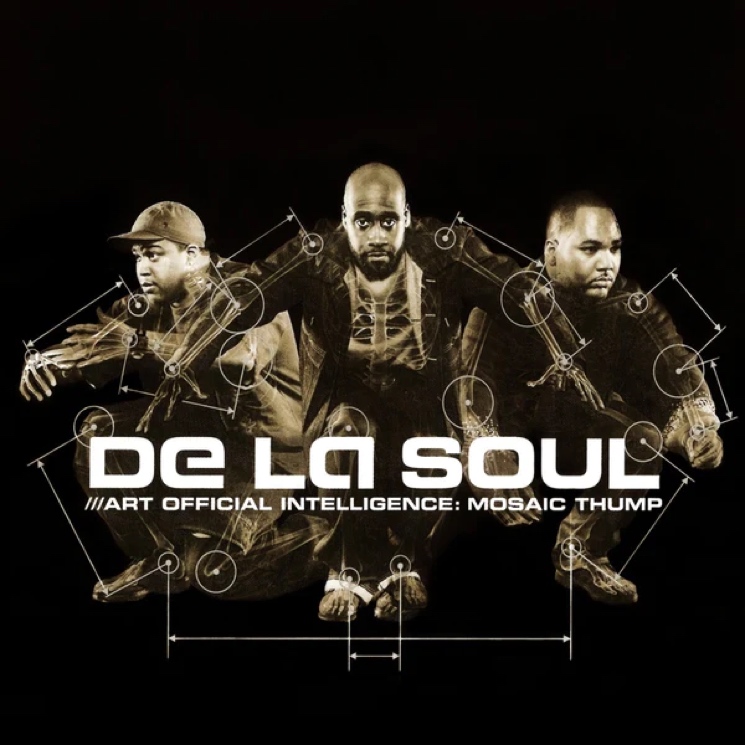
After over a decade without missing, Art Official Intelligence: Mosaic Thump was De La Soul's first flop. But it's still a relatively good album from the turn of the millennium — it's just easily lost between their classic early work and stellar late run. The futuristic album is heavily influenced, both sonically and aesthetically, by the looming idea of Y2K, which is borderline corny at times (although it never entirely crosses the line).
8. AOI: Bionix (2001)
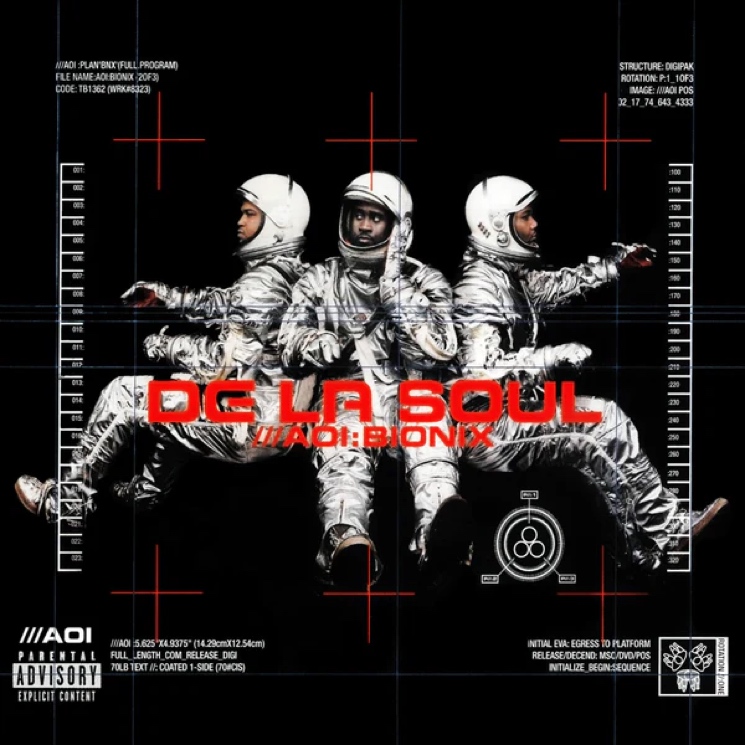
AOI: Bionix was the second of what was supposed to be a trilogy of Art Official Intelligence albums, which was not well received upon release. Today, the album is often described by fans as misunderstood and before its time. While it's nowhere near the brilliant and influential work the group put out in the late '80s and early '90s, Bionix has aged well — but not well enough to be considered one of De La Soul's best showings. With a high bar of greatness set by themselves, and competing against a barrage of great albums released the same year including JAY-Z's The Blueprint, Nas's Stillmactic, Busta Rhymes' Genesis, Missy Elliot's Miss E… So Addictive and Ja Rule's Pain Is Love, to name a few, AOI: Bionix is a just-good album in a discography filled with classics.
7. Plug 1 & Plug 2 Present… First Serve (2012)
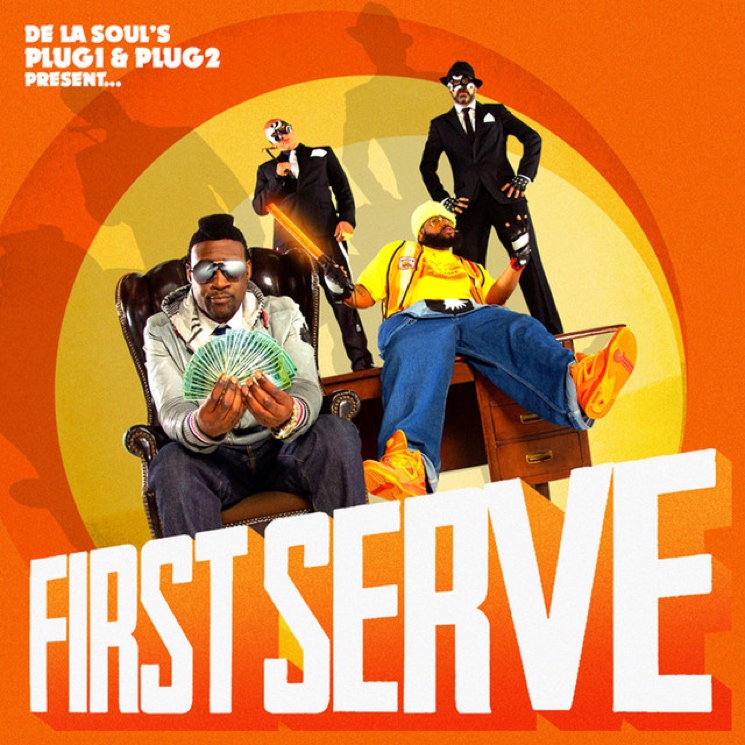
Not officially a De La Soul album, Plug 1 & Plug 2 Present… First Serve only features two out of the three group members, Kelvin Mercer (Posdnuos) and David Jolicoeur (Trugoy), collaborating with French duo Dj Chokolate and Dj Khalid Music. First Serve is a brilliant, creative piece of fiction, showcasing the group's overall growth in executing a concept. Adopting the persona of a fictional hip-hop group trying to make it in the music industry in the early '90s, Kelvin and Dave are transformed from Plug 1 and Plug 2 to "Jacob Pop Life" and "Deen Writer" (a.k.a. First Serve), and they rhyme with all the ferociousness of hungry '90s teens. Detailing the rise, fall and eventual comeback of the fictional duo, the album is a fun journey and masterclass in storytelling, with Kelvin and Dave electing to do interviews in character, and often referring to De La Soul as one of their influences.
6. and the Anonymous Nobody… (2016)
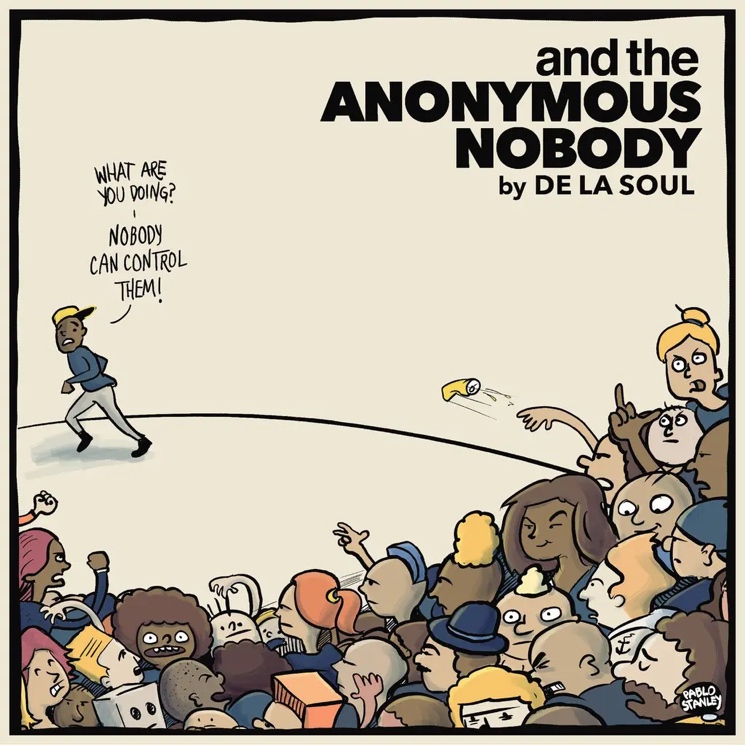
As the group's first full-length album in 12 years, 2016's and the Anonymous Nobody… had a lot riding on it shoulders and delivered on all fronts. Likely to be their swan song due to the recent passing of David Jolicoeur, and the Anonymous Nobody… is a beautiful lo-fi hip-hop album filled with eager features, fun skits, thoughtful lyrics and complementary but modern production. Exceeding public expectations in every way, this Kickstarter-funded and Grammy-nominated project could have been higher on this list, but the group members are sometimes upstaged by the hefty range of features gathered for this project. Almost doubling as a posthumous appreciation album, if this is De La Soul's last project featuring the whole trio, it's one to be proud of.
5. Buhloone Mindstate (1993)
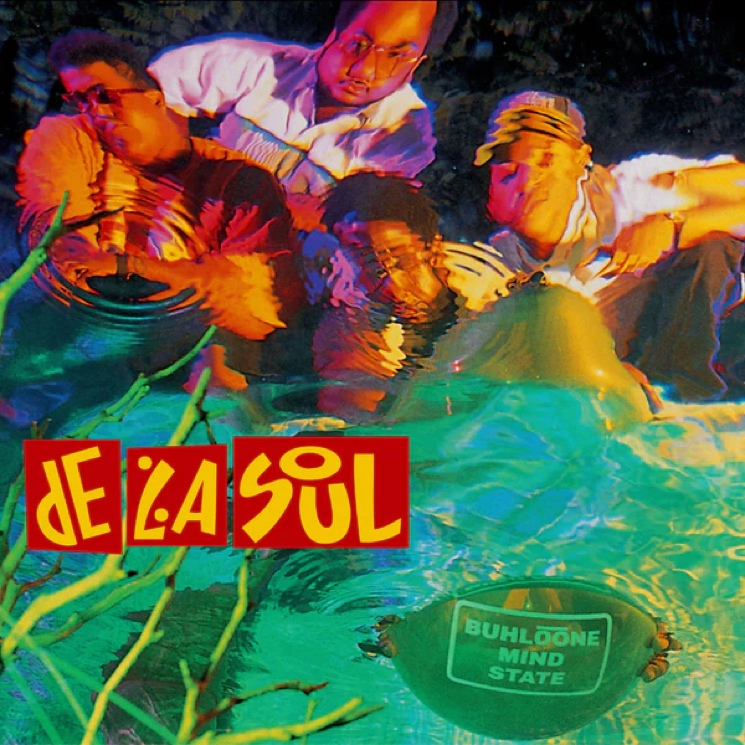
De La Soul's debut four-album run is legendary, and while Buhloone Mindstate might not be the most iconic of the quartet, it is a favourite for many fans. Their last project with producer Prince Paul contains the last remanences of the playful Black hippie energy that first put the group on the map. Wearing its jazz influences on its sleeve, Buhloone Mindstate is also unique in its production within De La Soul's discography; almost entirely a jazz rap album, Prince Paul did some of his best producing here. As the other group members grew from boys to men in real-time, their music continued to shift in a more mature and dark direction.
4. The Grind Date (2004)
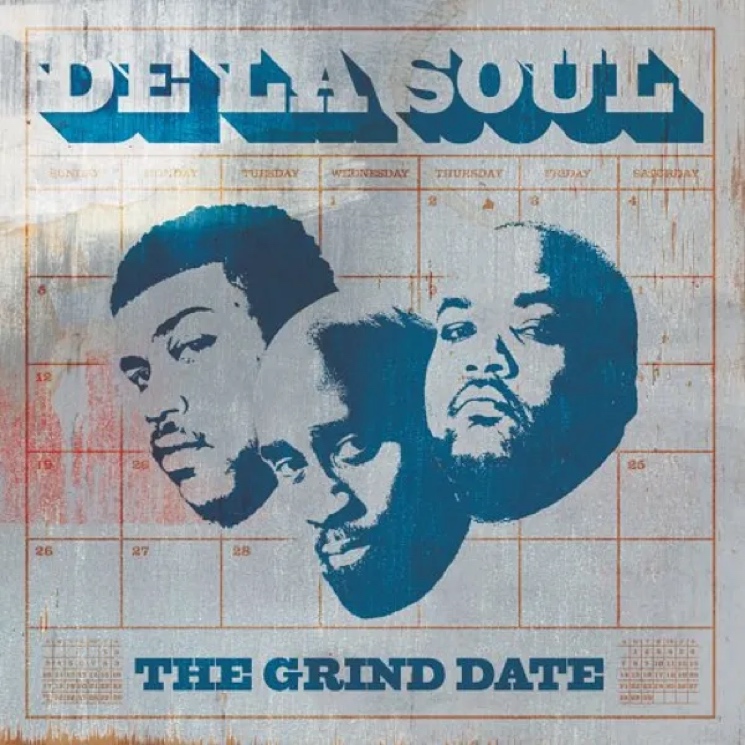
For OG De La Soul fans, putting The Grind Date above one of the group's first four albums might be blasphemous. However, as De La Soul make their streaming debut, The Grind Date is their best entry point and the group's most accessible album. This album is a perfect cross-section for classic hip-hop fans rediscovering De La Soul's discography and new fans listening for the first time. There is a lot to appreciate here, no matter what camp you land in, from the production credits from hip-hop heavyweights like J Dilla, Madlib and 9th Wonder, to incredible features from Ghostface, Common, MF Doom and Sean Paul. The all-star list of producers and features gathered here placed the group uniquely between their '90s old-school boom bap, sample-heavy production and the early 2000s glittery Southern crunk influences. What we get in the end is one of the group's best-produced and lyrically focused albums, with no skits; it's all killer, no filler, and the place we suggest you start if you have never heard a De La Soul project before.
3. Stakes Is High (1996)
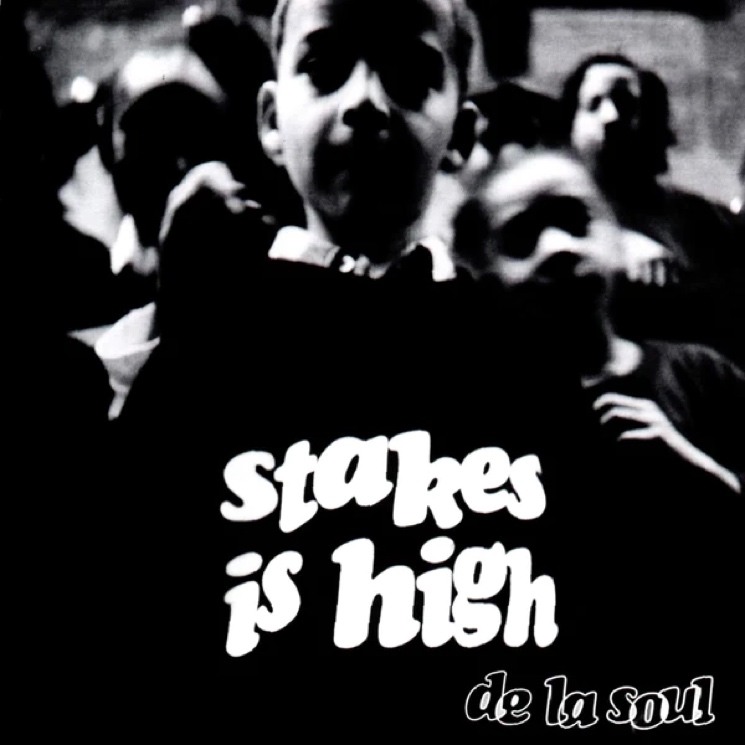
The end of an era, Stakes Is High marked both a turning point for De La Soul as a group and hip-hop as a genre. No longer just underground escapism for the disfranchised, by 1996, hip-hop was a full-on commercial powerhouse, and De La Soul had a lot to say about it. Salty and disgusted by the state of the culture, the group pulled no punches as they took aim at the incorporation of R&B into the genre and the influx of materialistic rappers, or what they called "money fakers." Dropping the playful lyrics for more deadpan commentary, Stakes Is High is all substance and no humour, as the group explored their sound without long-time producer Prince Paul for the first time. What came of that was a hard-hitting but mature boom bap jazz hip-hop album, which established the group as cultural elder statesmen.
2. 3 Feet High and Rising (1989)
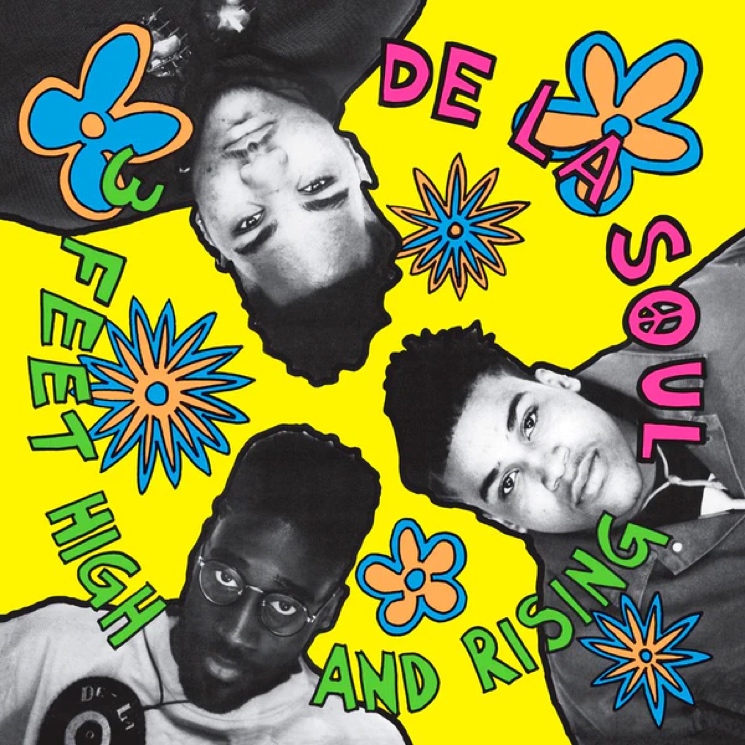
De La Soul's debut and only platinum album, 3 Feet High and Rising is a genuine hip-hop relic and arguably the most influential hip-hop album ever. It pioneered the album skit and redefined the possibilities of sampling. Producer Prince Paul's zany and experimental ideas around song structure are now staples in the genre. Meanwhile, Posdnuos and Maseo's nerd-like approach to rhyming and storytelling popularized what would eventually become backpack rap. Raw, dizzying and admittedly not always cohesive, 3 Feet High and Rising is in some ways the first hip-hop concept album. It's charming in its childlike, throw-everything-at-the-wall-and-see-what-sticks approach. Over the course of the decades since, countless other artists have refined and improved the concepts introduced on this debut project — but only De La Soul can claim they did it first. Simply put, there is no Tribe Called Quest, Outkast, Kanye West, Common or Childish Gambino without 3 Feet High and Rising. It's a must-listen for all hip-hop historians.
1. De La Soul Is Dead (1991)
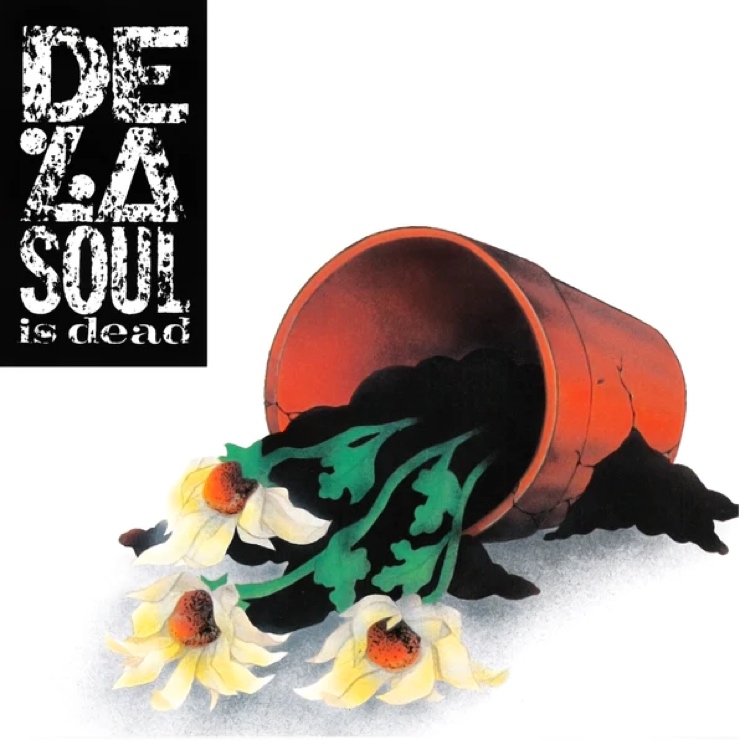
You can consider De La Soul Is Dead 1A and 3 Feet High and Rising 1B, because picking between these classic albums is a coin flip and, frankly, a matter of taste. Historically, 3 Feet High and Rising is the more influential album. Still, everything De La Soul did on their first album, they improved on with their second. Already cranky cultural commentators, De La Soul Is Dead is the core of what would eventually become the group's signature sound and style. Dropping the outsider Black hippie personas for a more street philosopher image, the group took the popularity they earned with 3 Feet High and Rising and ran with it. Oozing confidence on every track without being braggadocious, De La Soul manage to still be playful while attempting to tackle more serious subject matter on tracks like "My Brother's a Basehead" and "Millie Pulled a Pistol on Santa." De La Soul Is Dead transformed these artists from Long Island into modern day bards — hip-hop's own Aesop or Homer.
With quality and longevity as their calling card, there are no bad De La Soul albums — only good ones, great ones and classics. In celebration of their long-awaited debut on streaming services on March 3, and with a new generation of young fans discovering them for the first time, we've ranked all of De La Soul's albums from worst to best.
9. Art Official Intelligence: Mosaic Thump (2000)

After over a decade without missing, Art Official Intelligence: Mosaic Thump was De La Soul's first flop. But it's still a relatively good album from the turn of the millennium — it's just easily lost between their classic early work and stellar late run. The futuristic album is heavily influenced, both sonically and aesthetically, by the looming idea of Y2K, which is borderline corny at times (although it never entirely crosses the line).
8. AOI: Bionix (2001)

AOI: Bionix was the second of what was supposed to be a trilogy of Art Official Intelligence albums, which was not well received upon release. Today, the album is often described by fans as misunderstood and before its time. While it's nowhere near the brilliant and influential work the group put out in the late '80s and early '90s, Bionix has aged well — but not well enough to be considered one of De La Soul's best showings. With a high bar of greatness set by themselves, and competing against a barrage of great albums released the same year including JAY-Z's The Blueprint, Nas's Stillmactic, Busta Rhymes' Genesis, Missy Elliot's Miss E… So Addictive and Ja Rule's Pain Is Love, to name a few, AOI: Bionix is a just-good album in a discography filled with classics.
7. Plug 1 & Plug 2 Present… First Serve (2012)

Not officially a De La Soul album, Plug 1 & Plug 2 Present… First Serve only features two out of the three group members, Kelvin Mercer (Posdnuos) and David Jolicoeur (Trugoy), collaborating with French duo Dj Chokolate and Dj Khalid Music. First Serve is a brilliant, creative piece of fiction, showcasing the group's overall growth in executing a concept. Adopting the persona of a fictional hip-hop group trying to make it in the music industry in the early '90s, Kelvin and Dave are transformed from Plug 1 and Plug 2 to "Jacob Pop Life" and "Deen Writer" (a.k.a. First Serve), and they rhyme with all the ferociousness of hungry '90s teens. Detailing the rise, fall and eventual comeback of the fictional duo, the album is a fun journey and masterclass in storytelling, with Kelvin and Dave electing to do interviews in character, and often referring to De La Soul as one of their influences.
6. and the Anonymous Nobody… (2016)

As the group's first full-length album in 12 years, 2016's and the Anonymous Nobody… had a lot riding on it shoulders and delivered on all fronts. Likely to be their swan song due to the recent passing of David Jolicoeur, and the Anonymous Nobody… is a beautiful lo-fi hip-hop album filled with eager features, fun skits, thoughtful lyrics and complementary but modern production. Exceeding public expectations in every way, this Kickstarter-funded and Grammy-nominated project could have been higher on this list, but the group members are sometimes upstaged by the hefty range of features gathered for this project. Almost doubling as a posthumous appreciation album, if this is De La Soul's last project featuring the whole trio, it's one to be proud of.
5. Buhloone Mindstate (1993)

De La Soul's debut four-album run is legendary, and while Buhloone Mindstate might not be the most iconic of the quartet, it is a favourite for many fans. Their last project with producer Prince Paul contains the last remanences of the playful Black hippie energy that first put the group on the map. Wearing its jazz influences on its sleeve, Buhloone Mindstate is also unique in its production within De La Soul's discography; almost entirely a jazz rap album, Prince Paul did some of his best producing here. As the other group members grew from boys to men in real-time, their music continued to shift in a more mature and dark direction.
4. The Grind Date (2004)

For OG De La Soul fans, putting The Grind Date above one of the group's first four albums might be blasphemous. However, as De La Soul make their streaming debut, The Grind Date is their best entry point and the group's most accessible album. This album is a perfect cross-section for classic hip-hop fans rediscovering De La Soul's discography and new fans listening for the first time. There is a lot to appreciate here, no matter what camp you land in, from the production credits from hip-hop heavyweights like J Dilla, Madlib and 9th Wonder, to incredible features from Ghostface, Common, MF Doom and Sean Paul. The all-star list of producers and features gathered here placed the group uniquely between their '90s old-school boom bap, sample-heavy production and the early 2000s glittery Southern crunk influences. What we get in the end is one of the group's best-produced and lyrically focused albums, with no skits; it's all killer, no filler, and the place we suggest you start if you have never heard a De La Soul project before.
3. Stakes Is High (1996)

The end of an era, Stakes Is High marked both a turning point for De La Soul as a group and hip-hop as a genre. No longer just underground escapism for the disfranchised, by 1996, hip-hop was a full-on commercial powerhouse, and De La Soul had a lot to say about it. Salty and disgusted by the state of the culture, the group pulled no punches as they took aim at the incorporation of R&B into the genre and the influx of materialistic rappers, or what they called "money fakers." Dropping the playful lyrics for more deadpan commentary, Stakes Is High is all substance and no humour, as the group explored their sound without long-time producer Prince Paul for the first time. What came of that was a hard-hitting but mature boom bap jazz hip-hop album, which established the group as cultural elder statesmen.
2. 3 Feet High and Rising (1989)

De La Soul's debut and only platinum album, 3 Feet High and Rising is a genuine hip-hop relic and arguably the most influential hip-hop album ever. It pioneered the album skit and redefined the possibilities of sampling. Producer Prince Paul's zany and experimental ideas around song structure are now staples in the genre. Meanwhile, Posdnuos and Maseo's nerd-like approach to rhyming and storytelling popularized what would eventually become backpack rap. Raw, dizzying and admittedly not always cohesive, 3 Feet High and Rising is in some ways the first hip-hop concept album. It's charming in its childlike, throw-everything-at-the-wall-and-see-what-sticks approach. Over the course of the decades since, countless other artists have refined and improved the concepts introduced on this debut project — but only De La Soul can claim they did it first. Simply put, there is no Tribe Called Quest, Outkast, Kanye West, Common or Childish Gambino without 3 Feet High and Rising. It's a must-listen for all hip-hop historians.
1. De La Soul Is Dead (1991)

You can consider De La Soul Is Dead 1A and 3 Feet High and Rising 1B, because picking between these classic albums is a coin flip and, frankly, a matter of taste. Historically, 3 Feet High and Rising is the more influential album. Still, everything De La Soul did on their first album, they improved on with their second. Already cranky cultural commentators, De La Soul Is Dead is the core of what would eventually become the group's signature sound and style. Dropping the outsider Black hippie personas for a more street philosopher image, the group took the popularity they earned with 3 Feet High and Rising and ran with it. Oozing confidence on every track without being braggadocious, De La Soul manage to still be playful while attempting to tackle more serious subject matter on tracks like "My Brother's a Basehead" and "Millie Pulled a Pistol on Santa." De La Soul Is Dead transformed these artists from Long Island into modern day bards — hip-hop's own Aesop or Homer.
